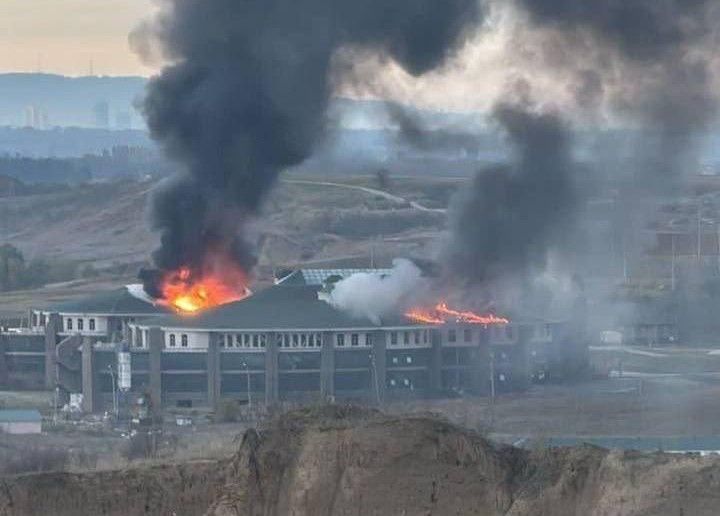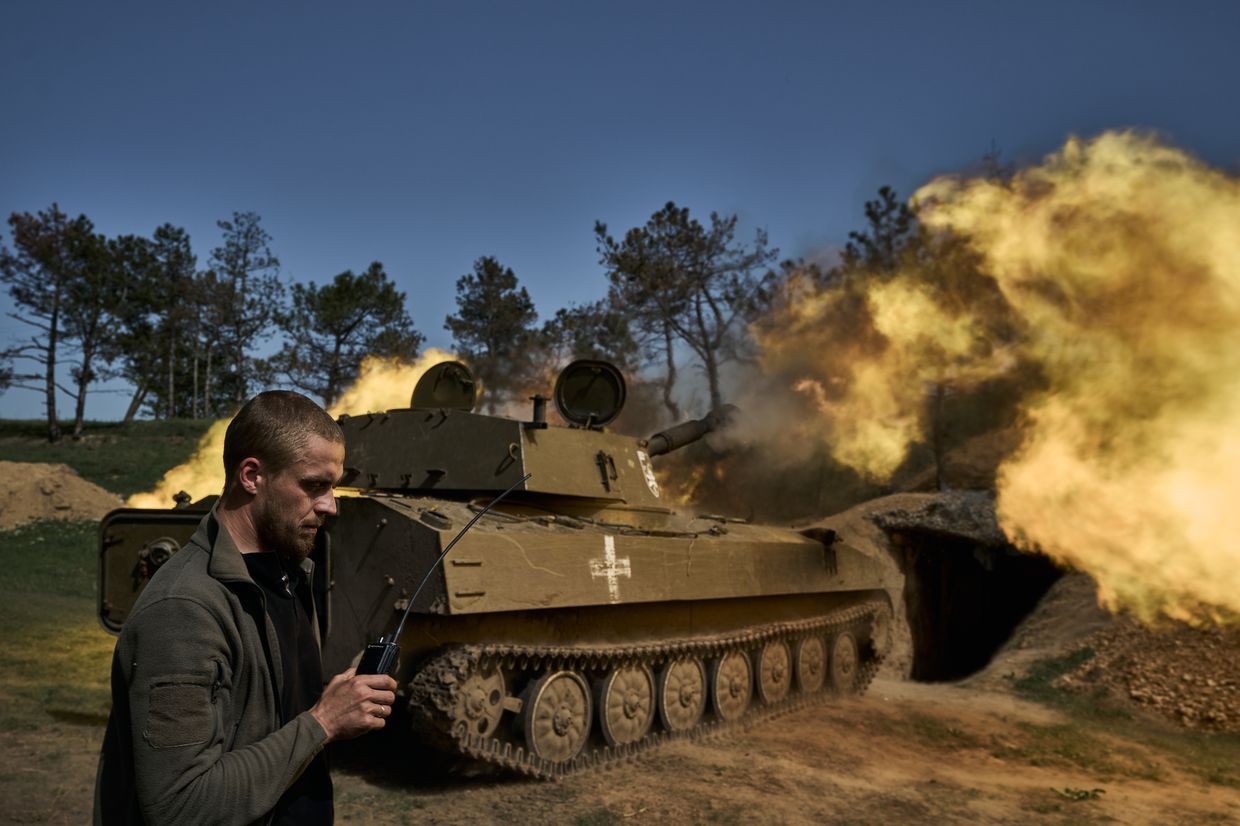Ukraine expands long-range drone strikes target list, alcohol now on the menu

Ukraine faces a tricky dilemma as winter approaches.
How can it disrupt an expected mass Russian missile campaign targeting the country's infrastructure while simultaneously being barred from using Western-supplied weapons to strike deep inside Russia?
Despite being limited to the use of long-range kamikaze drones, one method employed by Kyiv has scored some spectacular success in recent weeks.
One of the largest explosions of the full-scale invasion saw, in the words of a Security Service of Ukraine (SBU) source, an ammunition warehouse "literally wiped off the face of the earth" in Tver Oblast last month.
This came just days after Ukraine confirmed attacks on two other arms depots, with the U.K. Defense Ministry saying the combined strikes caused "the largest loss of ammunition" in Russia during its all-out war against Ukraine.
While the destruction of Russia's cruise and ballistic missiles by Ukrainian drones seems an obvious target for Kyiv's military planners, more recent strikes show the campaign is far broader. It now includes ethanol distilleries producing industrial alcohol.
"Russian military aviation cannot function without alcohol," Andrii Kovalenko, head of the counter-disinformation department at Ukraine's National Security and Defense Council, said in a post on social media.
His comments on Oct. 28 followed reports of a strike on an ethanol plant in Russia's Voronezh Oblast the evening before.
Kovalenko wasn't referring to the drinking habits of Russian pilots, but to the ethanol used in the manufacture of a wide range of both everyday items such as mouthwash and paint, to military-grade products needed to keep an air force flying.
"From fuel to braking systems, from liquids for technical needs, cleaning, to anti-icing agents. It's all alcohol," Kovalenko said.

Targeting the bottlenecks
As well as the strikes on ammunition depots, Ukraine has continued to target Russian factories, most recently the Kremniy El microelectronics plant in the Russian city of Bryansk overnight on Oct. 19.
"When you target an adversary's capabilities, there are always two ways of doing it — you either target the capabilities themselves, like the missile storage sites, the aircraft that carry them, etc., or you can target production," Fabian Hinz, a research fellow for defense and military analysis at the International Institute for Strategic Studies, told the Kyiv Independent.
According to reports, the Kremniy El plant produced, among other things, components for Russia's Iskander ballistic missile, making the factory a perfect target for Ukraine, Hinz said.
"The smart way of doing things is… to target the bottlenecks," he said, adding:
"And if you're very lucky, that bottleneck might not only be very narrow but may also not be as well-defended as other parts of the production process."
And with the recent strikes targeting ethanol production, it appears Ukraine is attempting to target a potential bottleneck in Russian aviation.
The aircraft dilemma and logic of drone strikes on distilleries
Ukrainian President Volodymyr Zelensky's concerted campaign to get permission to use Western-supplied weapons like the U.S-made ATACMs and the U.K's Storm Shadows to strike deep inside Russia has, to date, failed.
Kyiv specifically hoped to be able to use the weapons to strike Russian airbases, destroying aircraft like the Tu-22 bomber that launch missiles against Ukrainian cities.
Compounding the problem, while the international debate dragged its heels, the White House last month confirmed that Russia had moved 90% of its aircraft out of range of long-range missiles like the U.S.-made ATACMS.
While Russian airbases are still within range of Ukraine's long-range drones, they're far less effective against well-defended targets than ATACMs or Storm Shadows.
"One-way attack unmanned aerial vehicles (UAVs) usually have quite a small warhead so it's not the same as a ballistic or cruise missile," Hinz said.
However, drones can potentially have an outsized impact when they hit highly flammable and less protected targets, such as ethanol distilleries.

The first recent reported Ukrainian strikes on Russian ethanol plants was overnight on Oct. 22, when a drone reportedly set fire to the Biokhim distillery in the town of Rasskazovo.
Videos posted to social media by panicking locals showed a huge fire at the scene of the strike.
According to the Biokhim website, the plant produces "products of strategic importance for the state," in particular ethanol.
Two more distilleries came under the attack in the settlements of Efremov and Luzhkovsky in Tula Oblast on the same night.
And more recently, Russian media reported that Ukrainian drone strikes on the evening of Oct. 27 targeted distilleries in Russia's Voronezh Oblast.
"Strikes on distilleries are strikes on Russian aircraft in order to reduce their capabilities," Kovalenko said.
But an expert who spoke to the Kyiv Independent suggested Ukraine's tactic of targeting ethanol plants is unlikely to have a serious impact on Russian military aviation.
"While it sounds superficially plausible, it will be hard for such strikes to have a lasting impact, even in winter," Peter Layton, former Australian Air Force officer, associate fellow at the Royal United Services Institute, and visiting fellow at the Griffith Asia Institute, told the Kyiv Independent.
Layton pointed out that ethanol is "widely available globally," and even if all of Russia's production was taken out, a friendly country like China could resupply it quickly.
"New stocks can be quickly bought on the world market," he said. "Moreover, Russian ethanol plants are likely to only be out of service for a short time until they are repaired."
"It sounds like a critical vulnerability but is unlikely to prove so."












